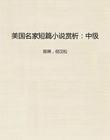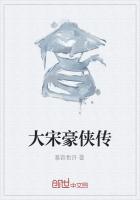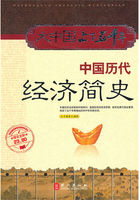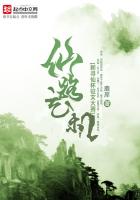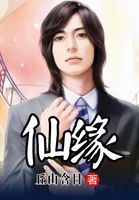Such was the tragedy that ended in October, 1867, with the hero at the age of thirty-seven; glory, genius, anguish, tears, but unconquerable faith and heroic fortitude. His larger life scarce begun, his full power felt, but only half expressed, he realized deeply --"The petty done, the vast undone!"
He yearned with passionate longing and hope and conscious might to fulfill an even greater mission; but in the infinite providence of God the full fruitage of this exquisite soul was for another sphere.
He was indeed "one of those who stirred us, a friend of man and a lover.
In no country of this earth could he long have been an alien, and that may now be said of his spirit. In no part of this universe could it feel lonely or unbefriended; it was in harmony with all that flowers or gives perfume in life."
The story of his last days, as given by his poet-friend, Paul Hayne, at the latter's cottage among the pines, is of tender and peculiar interest, and we quote it here, as it was written in 1873: --==
. . . In the latter summer-tide of this same year (1867), I again persuaded him to visit me. Ah! how sacred now, how sad and sweet, are the memories of that rich, clear, prodigal August of '67!
We would rest on the hillsides, in the swaying golden shadows, watching together the Titanic masses of snow-white clouds which floated slowly and vaguely through the sky, suggesting by their form, whiteness, and serene motion, despite the season, flotillas of icebergs upon Arctic seas. Like Lazzaroni we basked in the quiet noons, sunk into the depths of reverie, or perhaps of yet more "charmed sleep".
Or we smoked, conversing lazily between the puffs, "Next to some pine whose antique roots just peeped From out the crumbling bases of the sand."
But the evenings, with their gorgeous sunsets "rolling down like a chorus" and the "gray-eyed melancholy gloaming", were the favorite hours of the day with him. He would often apostrophize twilight in the language of Wordsworth's sonnet: --"Hail, twilight! sovereign of one peaceful hour!
Not dull art thou as undiscerning night;But only studious to remove from sight Day's mutable distinctions."
"Yes," said he, "she is indeed sovereign of ONE PEACEFUL HOUR!
In the hardest, busiest time one feels the calm, merciful-minded queen stealing upon one in the fading light, and `whispering', as Ford has it (or is it Fletcher?), -- `WHISPERING tranquillity'."
When in-doors and disposed to read, he took much pleasure in perusing the poems of Robert Buchanan and Miss Ingelow.
The latter's "Ballads" particularly delighted him. One, written "in the old English manner", he quickly learned by heart, repeating it with a relish and fervor indescribable.
Here is the opening stanza: --"Come out and hear the waters shoot, the owlet hoot, the owlet hoot;Yon crescent moon, a golden boat, hangs dim behind the tree, O!
The dropping thorn makes white the grass, O! sweetest lass, and sweetest lass Come out and smell the ricks of hay adown the croft with me, O!"
With but a slight effort of memory I can vividly recall his voice and manner in repeating these simple yet beautiful lines.
They were the last verses I ever heard from the poet's lips.
Just as the woods were assuming their first delicate autumnal tints, Timrod took his leave of us. In a conversation on the night but one previous to his departure, we had been speaking of Dr. Parr and other literary persons of unusual age, when he observed: "I haven't the slightest desire, P----, to be an octogenarian, far less a centenarian, like old Parr; but I hope that I may be spared until I am FIFTY or fifty-five."
"About Shakespeare's age," I suggested.
"Oh!" he replied, smiling, "I was not thinking of THAT; but I'm sure that after fifty-five I would begin to wither, mind and body, and one hates the idea of a mummy, intellectual or physical.
Do you remember that picture of extreme old age which Charles Reade gives us in `Never Too Late to Mend'? George Fielding, the hero, is about going away from England to try his luck in Australia.
All his friends and relations are around him, expressing their sorrow at his enforced voyage; all but his grandfather, aged ninety-two, who sits stolid and mumbling in his armchair.
"`Grandfather!' shouts George into the deafened ears, `I'm going a long journey; mayhap shall never see you again; speak a word to me before I go!' Grandfather looks up, brightens for a moment, and cackles feebly out: `George, fetch me some SNUFF from where you're going. See now' (half whimpering), `I'm out of snuff.' A good point in the way of illustration, but not a pleasant picture."
On the 13th of September, ten days after Timrod's return to Columbia, he wrote me the following note: --"Dear P----: I have been too sick to write before, and am still too sick to drop you more than a few lines. You will be surprised and pained to hear that I have had a severe hemorrhage of the lungs.
"I did not come home an instant too soon. I found them without money or provisions. Fortunately I brought with me a small sum.
I won't tell you how small, but six dollars of it was from the editor of the `Opinion' for my last poem.
"I left your climate to my injury. But not only for the sake of my health, I begin already to look back with longing regret to `Copse Hill'.
You have all made me feel as if I had TWO beloved homes!
"I wish that I could divide myself between them; or that I had wings, so that I might flit from one to other in a moment.
"I hope soon to write you at length. Yours," etc.
Again on the 16th I heard from him, thus: --"Yesterday I had a still more copious hemorrhage! . . .
"I am lying supine in bed, forbidden to speak or make any exertion whatever.
But I can't resist the temptation of dropping you a line, in the hope of calling forth a score or two from you in return.
"An awkward time this for me to be sick! We are destitute of funds, almost of food. But God will provide!
"I send you a Sonnet, written the other day, as an Obituary for Mr. Harris Simons. Tell me what you think of it -- be sure!





